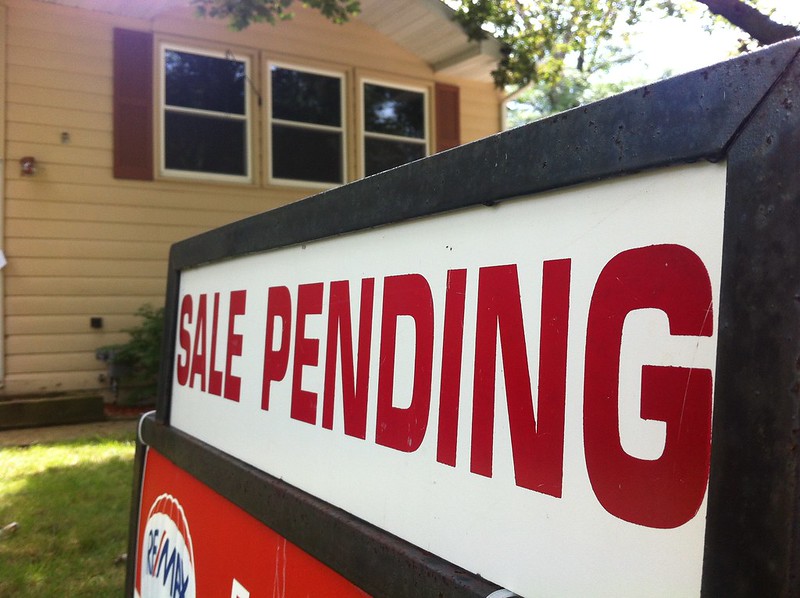
What Home Buyers Need to Know
In a seller’s market, buyers anxious to start touring homes may find very few opportunities. Some buyers might try to make offers despite pending deals, eager to be runners-up just in case a sale doesn’t make it to closing. Here’s what to know about pending offers, and whether a pending home could still be available.
First, What Is “Pending” in a Real Estate Deal?
When a real estate seller and buyer agree on the terms of a deal, the buyer’s offer becomes pending. At this stage, the buyer will have an appraisal and inspection done. The mortgage company will get ready to review all known aspects of the home and the offer, in preparation for issuing the final loan approval.
The word pending generally stops further queries on the home from buyers. When housing demand is very strong, though, some buyers may wonder…
Can a Buyer Still Make an Offer on a Home in Pending Status?
And the answer is… Probably. The home might be listed as accepting backup offers or continuing to show or otherwise active in the Multiple Listing Service. Those are the clearest cues that backup offers are welcome. Tours — at least virtual tours — may still be available; the seller’s agent will have specific information.
To make a backup offer, the seller must prepare to follow through with it, and be ready to actually buy the home if the current deal falls through. A backup offer is a contractual agreement.
A hopeful buyer who is permitted to submit a backup offer can, because the offer is binding, be immediately considered for the home if the party who made the pending offer doesn’t get to closing. Then, if the current deal falls apart, the seller can proceed to the backup buyer without having to relist the home. Nice!
Sometimes, if a home keeps showing sale pending in the MLS for a prolonged period, the real estate website might be showing obsolete information. A curious buyer should have their real estate agent send a query to learn the home’s current status.
☛ Looking to Buy or Sell a House in 2021? Take a Look at the Real Estate Apps Today’s Buyers and Sellers Are Using.
What’s the Difference Between the Contingent and Pending Status?
Contingent comes first. Usually, pending is the last phase before closing. This means a runner-up buyer has a better chance of getting a contingent home than a home listed as pending.
A contingent sale is one where the buyer named on the contract has offered a price, the seller has accepted, and the listing is still on the MLS in case one or more of the contract’s contingencies doesn’t work out. Getting to closing could hinge on a good report from a professional home inspector, or an appraisal that comes in and vouches for the parties’ agreed price.
The buyer might set other contingencies — such as only closing on the deal after getting a final loan approval. Or the buyer might make the deal contingent on successfully selling their current home.
Both the home’s hopeful buyer and its current owner should negotiate for contingencies and be sure they appear in the contract, in order to reduce exposure to risks. Having a real estate agent on each side of the transaction is important, as local agents guide the contingencies in each of their client’s best interest. So, a contingency clause in a contract releases a party’s duty to go through with the deal if that agreed-upon expectation is not filled (or waived, to allow closing to proceed).
This saves money! A contingency clause can relieve the buyer of penalties for backing out based on the reason specified in the contingency (for example, if a problematic inspection report comes back). That is, in the contingency phase, a home buyer may cancel the purchase agreement without walking away from the earnest money deposit.
Once the contingencies are successfully met, the status of a home sale changes to pending.
☛ Can you buy a home today without waiving contingencies? Here are the top strategies for successfully buying a home with contingencies in the current seller’s market.
Once the home is described as pending, other hopeful buyers can tell that all contingencies are worked through and escrow is readied for closing.
Is Under Contract the Same Thing as Contingent?

In real estate listings, the terms contingent and under contract may have identical meanings.
When the seller and buyer are under contract, the parties have arrived at a formal agreement. Still, the appraisal and inspection processes have to hold up to any contingencies spelled out in their contract. As the deal is not yet done, the seller might be open to backup offers from additional hopeful home buyers.
Even after all contingencies in the agreement are met, and the sale status switches to pending, the buyer can still back out. Granted, few buyers back out at the pending stage. In most cases of deals falling through, it’s about contingencies not being met. The point is: No deal is final until the parties sit down and close the deal.
So, when will it all be done and final? A typical home sale takes under two months. Somewhere within the 30- to 45-day range, the parties should be able to sit down at the table. In a popular area, during a brisk market, getting to closing could happen as soon as two weeks from the time the parties entered into a contract.
How Could a Home Purchase Deal Fall Apart?
Why would the parties cancel their contract? Often, it’s because the lender did not issue its final approval, so the financing contingency has not been met. Being pre-approved for a loan does not always mean getting the loan. Perhaps the appraisal indicates that home isn’t worth what the parties agreed to pay. A bank could decide that the asset securing the loan was not valued correctly, and the loan can’t be issued.
Perhaps the buyer is forced into a job change or loss of employment in the days leading up to the closing date. Or the buyer, in a moment of irrational exuberance, could make a large purchase using a credit card, torpedoing a formerly intact credit profile.
Or perhaps the buyer simply has not been able to sell a currently owned home.
Home inspections can become real issues for the contingency phase. If any substantial safety or repair issue turns up during the professional inspection, the deal could fall apart. Given the greater room for subjectivity over the home inspection, an inspection report can be a point of contention. Buyers eager for prompt closings may read them flexibly. Other buyers may stand firm over necessary repairs or rely on problems in the inspection report to walk away from a deal during the contingency period. Sometimes, the buyer has found another, more appealing house they’d like to buy. Substantial problems on the inspector’s report can present reasonable ways to get out of the deal without penalty.
And what might still happen at the pending period? Perhaps there’s trouble with the seller having full rights to transfer the title. Maybe there’s a significant lien on the home that needs a resolution in order to clear the title.
Now and then, a pending sale falls apart when a buyer, facing buyer’s remorse, a life change, or some other new circumstance, opts to give up the earnest money and walk away.
Know the Local Vocabulary
Real estate listings contain different terms in different places. Subtle differences in vocabulary can be big issues for sellers and buyers.
When you talk to your real estate agent, ask for a rundown of the local real estate vocabulary. In this way, too, having a real estate agent on your side can help you make the most of your real estate deal.
Note: Our readers should keep in mind that this website is here for general information only. Articles on this site cannot substitute for a local real estate lawyer’s advice.
Photo credits: Dan Moyle via Flickr (CC by 2.0), and Paulbr75, via Pixabay.
